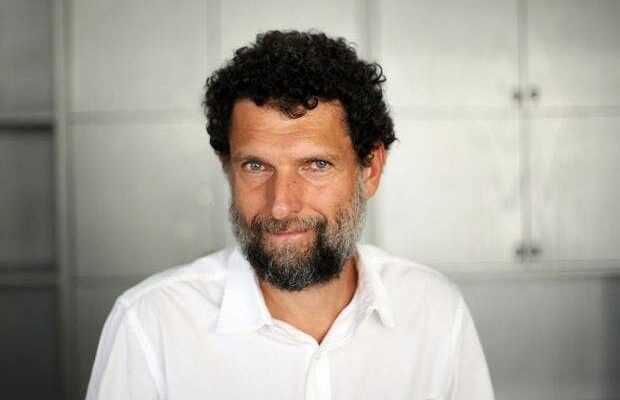The verdict against cultural promoter Osman Kavala shows that the Turkish president has no intention of stopping the persecution of his opponents. Now the Europeans have to show how serious they are about human rights.
Osman Kavala is set to remain behind bars for life on flimsy grounds.
The harsh verdict against Osman Kavala in Istanbul presents the West with a difficult decision: the life imprisonment for the Turkish cultural patron is a mockery of the law. The accusation that he tried to overthrow the government is as absurd as it is unproven. The verdict is also an open affront to the European Court of Human Rights, which had already condemned Kavala’s detention as unlawful at the end of 2019 and called for his release in an actually binding decision.
But in the war in Ukraine, Turkey has gained new importance as a mediator and ally for the West. The partner on NATO’s southern flank not only supports the Ukrainians with combat drones and has blocked the Bosphorus for Russian warships. Turkish President Recep Tayyip Erdogan also plays an important role as a mediator and has invited representatives from Kiev and Moscow to peace talks on several occasions.
Some European states may be tempted to put human rights and the rule of law on the back burner. When it comes to war and peace, some will think you can’t risk a conflict with an important partner over one person. But if the West is serious about defending democracy, human rights and the rule of law, then it must not stop at a few words of protest.
The judiciary is politicized and incompetent
The trial against the internationally respected businessman, publisher and cultural promoter not only showed the frightening incompetence of the Turkish judiciary, which was not even able to present halfway coherent evidence. The Kafkaesque trial also revealed like no other how thoroughly politicized the judiciary under Erdogan is. To do the will of the palace, judges and prosecutors are ready to jettison all principles of the rule of law and bend the law until it breaks.
Over the years has been the process more and more confused: Counts of charges have been raised and dropped. The process was merged with other procedures only to be separated again. Kavala was acquitted but immediately arrested again. It took prosecutors 16 months to present an indictment. When this was available, it resembled a hastily assembled conspiracy theory work.
Just because the West needs Erdogan in the Ukraine war, it shouldn’t remain silent about human rights violations in Turkey
In the end, the accusation that Kavala tried to overthrow the Erdogan government with the Gezi protests in Istanbul in the summer of 2013 remained. However, the prosecutors were unable to prove that the patron and his co-defendants had actually initiated and financed the spontaneous, decentralized protest movement. Nor was their assertion that the street protests represented a violent attempted coup convincing.
Osman Kavala is not an isolated case
The case against Kavala may have been particularly absurd, but it is not an isolated case. Since the attempted coup in July 2016, Erdogan has had tens of thousands of unpopular officers, civil servants and prosecutors sentenced to long prison terms in disregard for the most elementary principles of the law. Countless critical journalists, independent scientists and representatives of civil society have also been jailed on flimsy charges.
Like Osman Kavala, many of those convicted stand for a more pluralistic, democratic and open Turkey. To accept their detention for geopolitical reasons would be wrong. Not only would this damage the West’s credibility, it would also be short-sighted. Vladimir Putin’s decision to invade Ukraine has shown the importance of a critical press, a strong opposition and an independent civil society. And how dangerous an all-powerful autocrat can be in the solitude of his palace.
